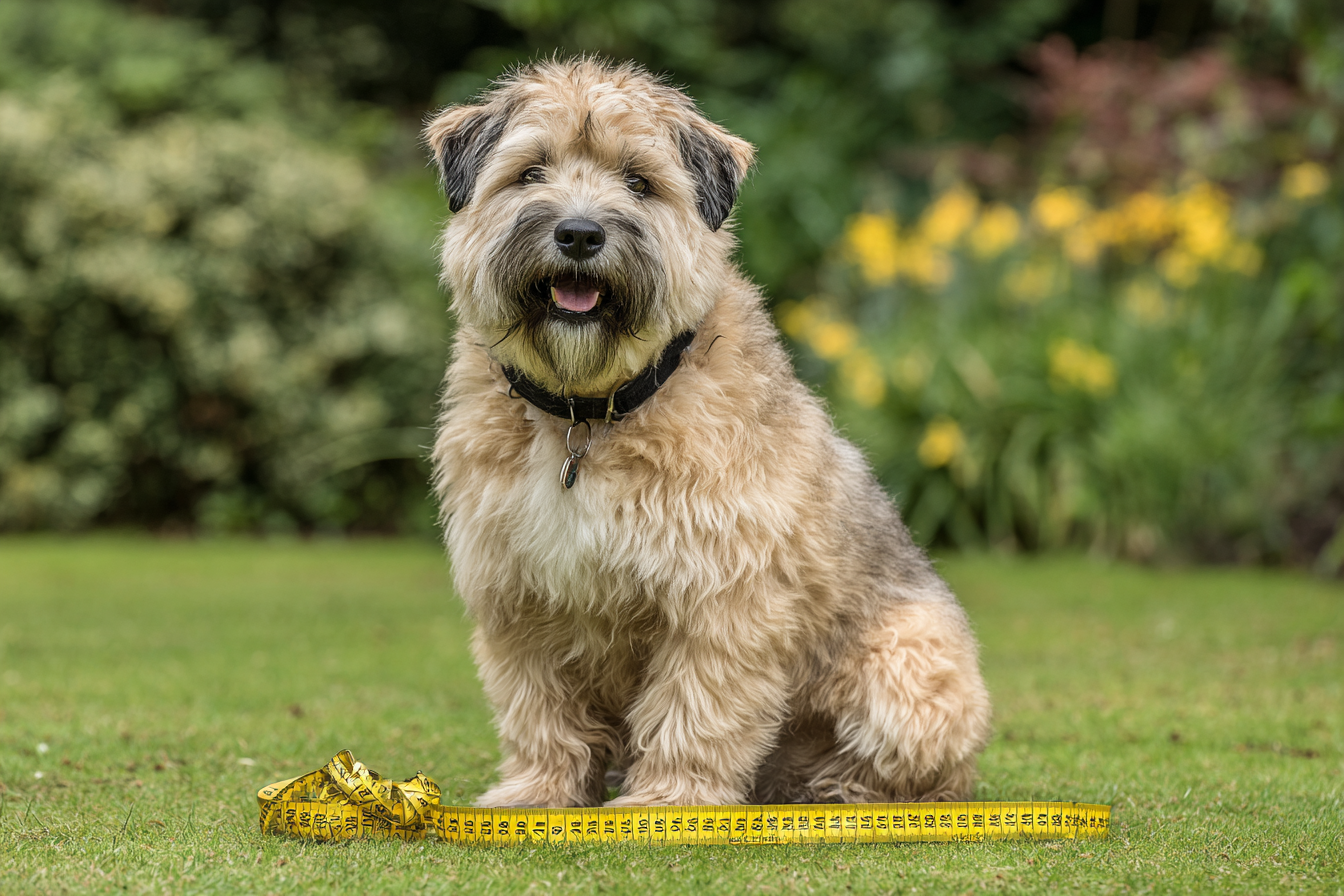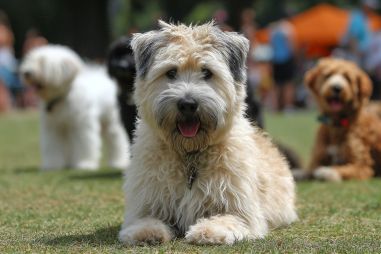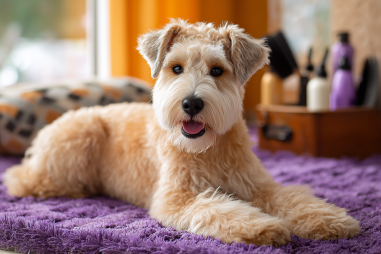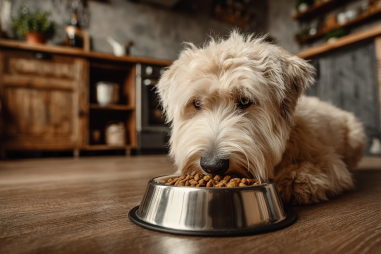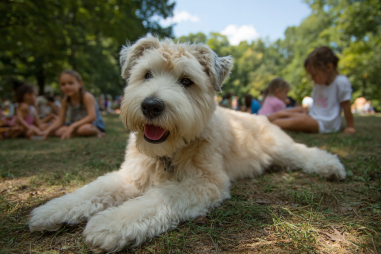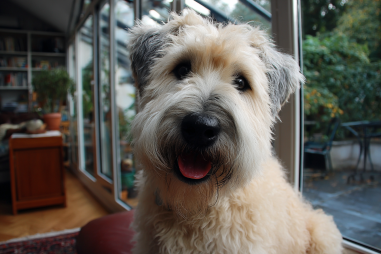The Soft Coated Wheaten Terrier is a charming and energetic breed known for its soft, silky coat and friendly personality. If you’re considering adding one of these delightful dogs to your family, understanding their typical size and weight is essential for ensuring their health and happiness. This guide dives into the breed standards, growth patterns, and practical tips to help you keep your Wheaten Terrier well-proportioned and thriving.
Breed Size and Weight Benchmarks
Soft Coated Wheaten Terriers generally have a medium size build, and knowing the typical size and weight range helps owners recognize a healthy dog. According to breed standards, adult Soft Coated Wheaten Terriers typically stand between 17 to 19 inches (43 to 48 cm) tall at the shoulder. Weight-wise, healthy males usually weigh between 35 to 40 pounds (16 to 18 kg), while females tend to be slightly lighter, ranging from 30 to 35 pounds (14 to 16 kg).
It’s important to remember that individual dogs may fall a bit outside of these ranges due to genetics and lifestyle, but staying close to these benchmarks usually indicates a balanced structure. When a Wheaten Terrier is within the proper size and weight standards, it generally means the dog has a strong bone structure and muscle tone, which supports long-term joint and overall health.
Growth Stages and Weight Tracking
Like all dogs, Soft Coated Wheaten Terriers undergo rapid growth in their early months, so regularly tracking their size and weight during puppyhood is crucial to ensure proper development. Typically, a Wheaten puppy will reach about half of its adult weight by the time it is four months old and then continue to grow steadily until around 12 months, when their adult size is usually achieved.
Monitoring growth allows you to spot any sudden changes that might signal health concerns. Keep a record of your puppy’s weight and height during vet visits or at home, and compare it with typical growth charts available for the breed. This simple practice helps you avoid underfeeding or overfeeding, both of which can lead to long-term health problems.
Differences Between Males and Females
When considering size and weight, it’s helpful to understand the natural differences between male and female Soft Coated Wheaten Terriers. Males are usually slightly larger and heavier than females due to their greater muscle mass and bone density. Typically, males will weigh about 5 pounds more and be about an inch taller at the shoulder than females. However, these differences are subtle and can vary depending on each dog’s genetics and activity level.
Both sexes are equally affectionate and energetic, but knowing these size variations helps owners set realistic expectations for things like food quantities, exercise requirements, and even the size of bedding or crates.
Impact of Nutrition and Exercise
Proper nutrition and regular exercise play vital roles in maintaining an ideal size and weight for your Soft Coated Wheaten Terrier. A balanced diet tailored to the breed’s age, activity level, and health status provides the essential vitamins, minerals, and proteins needed for muscle development and overall vitality.
Because Wheaten Terriers are naturally lively and playful, they require daily exercise – including walks, playtime, and mental stimulation – to keep excess weight at bay and maintain muscle tone. Overfeeding or feeding a diet high in fillers paired with insufficient physical activity can lead to unwanted weight gain and associated health risks like joint stress and heart problems.
Signs of Underweight or Overweight
Recognizing when your Wheaten Terrier is underweight or overweight is key to early intervention. Here are some common signs to watch for:
- Underweight: Visible ribs, backbone, or hip bones; lack of muscle mass; low energy levels.
- Overweight: Difficulty feeling ribs under the coat due to excess fat; a rounded abdomen; decreased stamina during exercise; panting at rest.
If you notice any of these signs, it’s important to assess your dog’s diet and exercise routine carefully. Persistent weight issues can lead to severe complications, but they are often manageable with timely adjustments.
Healthy Weight Maintenance Tips
Keeping your Soft Coated Wheaten Terrier within a healthy weight range starts with routine habits and informed choices. Here are some practical tips to help:
- Measure food portions: Avoid free feeding and measure meals according to vet recommendations.
- Choose high-quality dog food: Look for brands formulated with appropriate protein levels and minimal fillers.
- Regular exercise: Ensure at least 30-60 minutes of activity daily, combining walks, play, and training.
- Treats in moderation: Use low-calorie treats and count them toward daily caloric intake.
- Routine weight checks: Weigh your dog monthly to catch weight fluctuations early.
- Grooming: Keeping the coat clean and trimmed makes it easier to assess body condition visually and physically.
When to Consult a Veterinarian
While monitoring size and weight is largely the owner’s responsibility, it’s essential to involve a veterinarian for professional advice and health assessments. If your Wheaten Terrier is not gaining weight as expected, losing weight without explanation, or showing signs of weight-related issues, schedule a vet visit promptly.
Veterinarians can perform a comprehensive health check, screen for parasites or illnesses, and recommend tailored nutrition and exercise plans. Regular check-ups also ensure vaccinations and preventive care are up to date, helping your dog maintain overall wellness alongside a healthy size and weight.
Embracing the Joy of a Well-Proportioned Wheaten Terrier
Understanding the size and weight standards of Soft Coated Wheaten Terriers helps owners nurture their pets’ health with confidence. By tracking growth stages, recognizing differences between males and females, providing balanced nutrition and exercise, and responding to weight concerns promptly, you’ll support your Wheaten Terrier in living a happy, energetic life.
Remember, every dog is unique, so maintaining open communication with your veterinarian will ensure your furry friend stays fit and fabulous throughout their lifetime.

